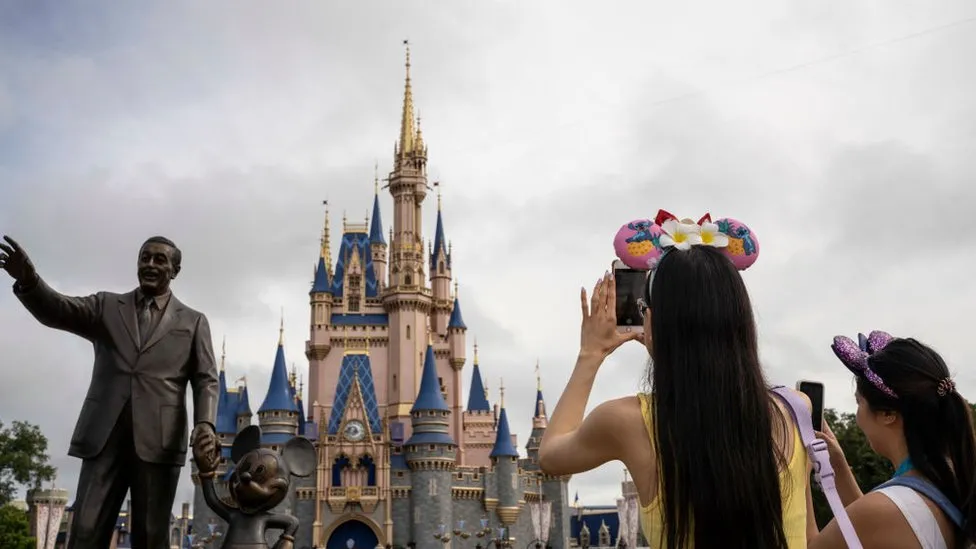A US judge has sided with Florida Governor Ron DeSantis in his fight with Disney, rejecting a lawsuit that had accused the Republican of organising a campaign of “government retaliation”.
Judge Allen Winsor said the actions that Disney opposed were legal and it lacked standing to sue the governor. Florida moved to tighten its oversight of Disney's amusement park last year.
The change came after the company criticised a state law that restricted the teaching of sexuality in schools. In his ruling, Judge Winsor said the changes were clearly detrimental to Disney, which had enjoyed unusual power over the special tax district where its Walt Disney World park is located since 1967.
They gave Mr DeSantis the power to appoint members to the district's governing board, removing that authority from landowners in the 25,000-acre district, of which Disney is by far the biggest. But the judge said state legislators had the right to make the changes and the company had failed to prove it faced any imminent harm from the governor.
In dismissing the suit, the judge wrote that courts cannot rule that a law is unconstitutional solely because lawmakers may have had an “illegitimate motivation” in enacting it.
“Because that is what Disney seeks here, its claim fails as a matter of law,” he wrote. Disney said it would press forward with its case, which had argued that the moves threatened its business and violated its free speech rights.
“This is an important case with serious implications for the rule of law, and it will not end here,” the company said.
“If left unchallenged, this would set a dangerous precedent and give license to states to weaponize their official powers to punish the expression of political viewpoints they disagree with.”
A spokesman for the governor's office released a statement praising the verdict against the “Corporate Kingdom”.
“The days of Disney controlling its own government and being placed above the law are long gone,” said Jeremy Redfern. a spokesperson for the governor. The dispute between Disney and Mr DeSantis began as the Republican was preparing to launch his campaign for president.
Mr DeSantis dropped out of the race this month, after a poor showing in the Iowa caucuses.
The two sides started feuding after Disney, under pressure from its staff, criticised the Parental Rights in Education Act – dubbed the “Don't Say Gay” bill by critics – which banned discussion of sexual orientation and gender identity for young students.
The state later expanded the ban to all grades. Mr DeSantis's decision to challenge the company, which is the state's largest employer, helped to elevate his national profile, cementing him as a culture warrior.
But it did not come without costs. It made traditional, business-friendly Republicans leery and it opened him to ridicule from former President Donald Trump, who at one point wrote on social media that it was all “so unnecessary, a political STUNT”.
In an August interview with business broadcaster CNBC, Mr DeSantis surged Disney to drop its suit, saying he had “moved on” from the fight, though it has continued to simmer. In December, the DeSantis-appointed board issued a report that accused Disney of providing benefits “akin to bribes” to earlier board members and employees of the district.
It has also sued the company over a last minute deal that Disney pushed through before the new board took over, which limited its powers. That lawsuit is still pending. The clash has also weighed on Disney, which has been facing a wider backlash from the right.
— CutC by bbc.com


